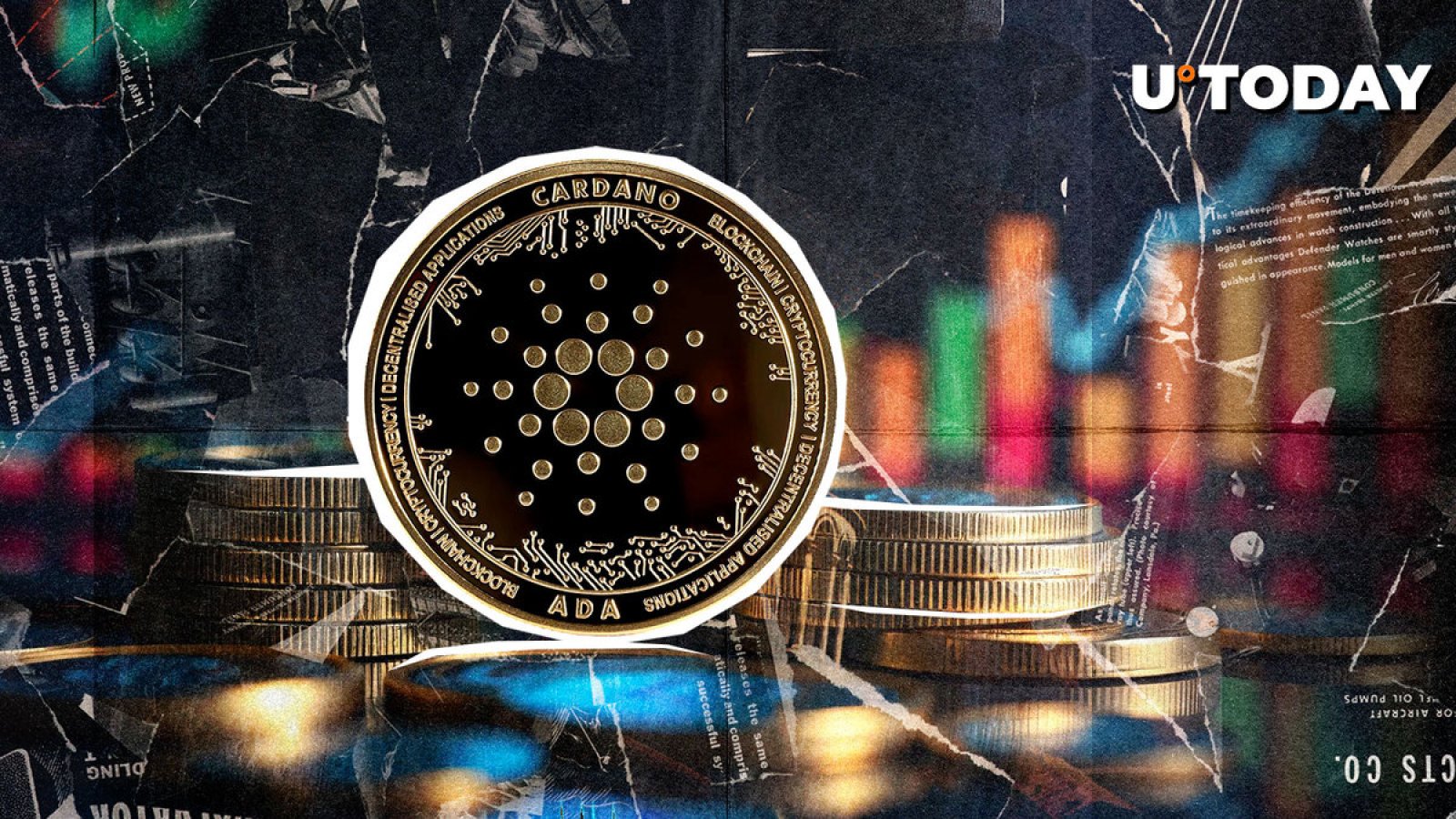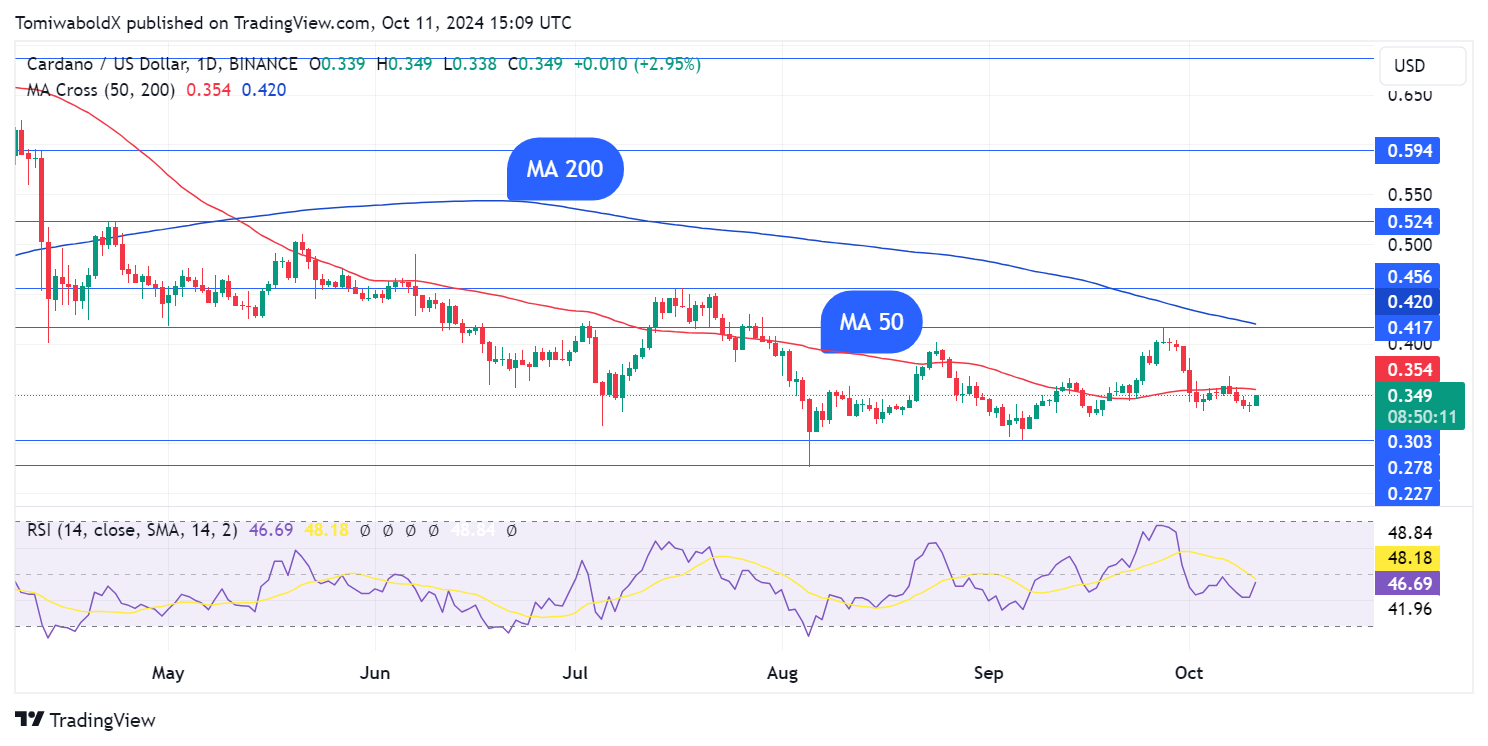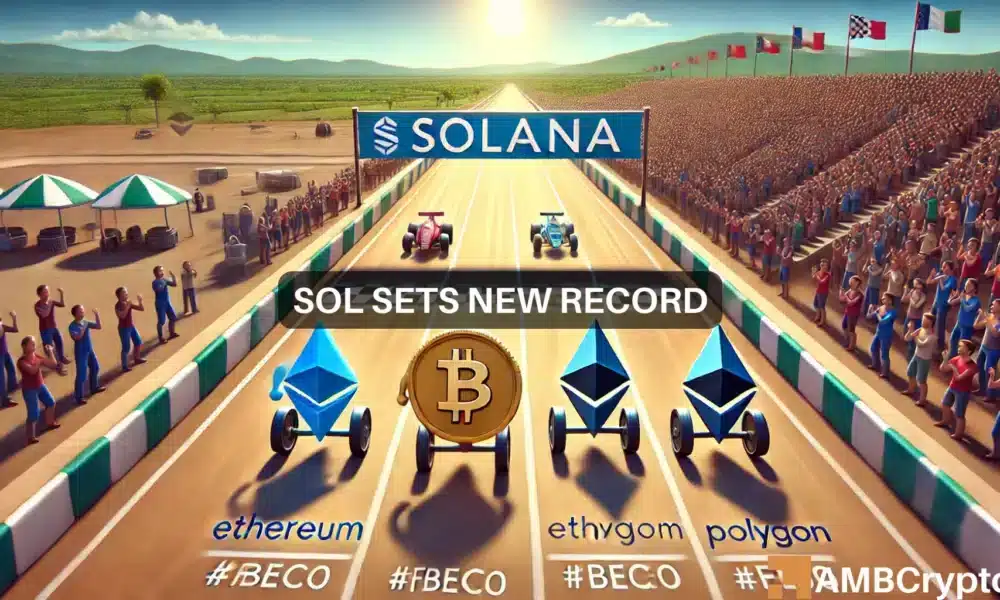
Disclaimer: The opinions expressed by our writers are their own and do not represent the views of U.Today. The financial and market information provided on U.Today is intended for informational purposes only. U.Today is not liable for any financial losses incurred while trading cryptocurrencies. Conduct your own research by contacting financial experts before making any investment decisions. We believe that all content is accurate as of the date of publication, but certain offers mentioned may no longer be available.
Cardano, the eleventh largest cryptocurrency by market capitalization, has seen an almost 5% price increase in the last 24 hours as Bitcoin regained some ground and traded above $61,000 on Friday.
The cryptocurrency market fell following a U.S. CPI report that showed higher-than-expected inflation in September, seemingly putting an end to hopes for another 50 basis-point interest-rate decrease by the Fed next month.
Bitcoin plunged beneath $59,000, and Cardano fell to the low of $0.331 during the Thursday trading session following three days of falls before rebounding.

Cardano has rebounded from a low of $0.331 on Thursday, rising 4.10% in the last 24 hours to $0.348. The price rebound is accompanied by a spike in large transaction volume, which estimates the total amount transacted by whales in a given day. This amounted to $5.8 billion over the last 24 hours or 17.23 billion ADA in cryptocurrency terms according to IntoTheBlock data
Cardano ecosystem keeps growing
This week, Cardano builder Input Output Global (IOG) shared growth highlights from the past month of September.
As of Sept. 27, Input Output reported 1,376 Cardano-based projects. The number of delegated wallets rose by 1,000. Plutus scripts increased by 13,611 to total 88,340. The number of token policies climbed by 13,064, while the number of native tokens issued increased by 80,000.
The overall number of transactions grew by 1.34 million in the past month. Node v.9.2.0 was released in September. It included several improvements and bug fixes. Node v.9.2.1 was also published as a minor upgrade that improves the performance of certificate validation.
Lace v.1.16 was released in the past month which includes improved wallet functionality, faster multi-delegation address management, and improved message signing capabilities. The Hydra team released version 0.19.0, which updated the ledger to the Conway era while remaining compatible with Babbage-era transactions.










